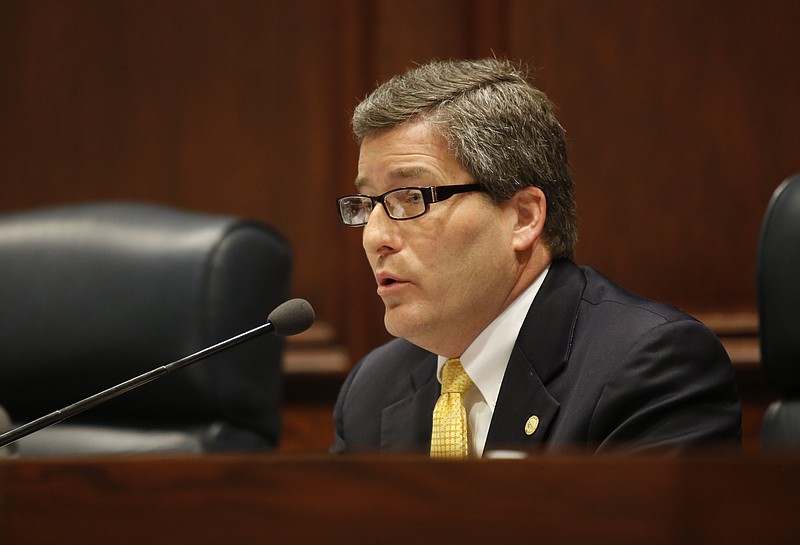When campaigning for re-election a year ago, Hamilton County commissioners didn't seem overly interested in keeping the $100,000 in discretionary funds they have been given each year to use in their districts as they see fit.
Some told Times Free Press editors they wouldn't mind if the so-called discretionary funds went away. Others could take it or leave it. Still more suggested modifications if the funds were kept.
Read more
* Hamilton County commissioners vote to take spending money back * Greeson: Sneaky six commissioners pull six-figure fast one
On Wednesday, Hamilton County residents saw just how important that money was to commissioners when they voted 6-3 to amend the completed 2016 budget to pull $900,000 from the county's rainy-day fund to keep the discretionary funds. And then they voted 8-1 to pass the amended budget.
The last-minute vote occurred with no public discussion and no debate among commissioners.
That's not a transparent way to do the county's business. The commissioners should not have done it.
County Mayor Jim Coppinger now will have a period of time during which he can veto the budget. If he does, then the County Commission will have a subsequent period of time to react to that veto.
A better way to have handled matters, at least for the next year since the mayor took the discretionary funds out of the 2016 budget, would have been for commissioners to make their individual requests as the year went on, have those requests openly debated and then voted on.
Then, when budget time comes around in 2016, a determination could be made whether to continue with individual requests or return discretionary funds to the commissioners.
The commissioners who voted for the amendment to reinstate the funds - Chester Bankston, Tim Boyd, Randy Fairbanks, Jim Fields, Warren Mackey and Sabrena Smedley - want the money for largely legitimate reasons. Most of their funds go to help either schools or recreation areas in their districts, which have funding needs that are not met elsewhere. Indeed, a plurality of funds in 2014 and thus far in 2015 have been spent on school or district recreation needs.
And going before the rest of the commission to request money for individual items could have been a good exercise for the commissioners. Not only would those discussions be open and transparent and could have pointed up particular areas of unfunded needs, but commissioners might have been able to help each other with suggestions on how to meet those needs.
Since Coppinger, who called the commissioners' action "fiscally irresponsible," is a Republican, and seven of nine commissioners are Republicans, the amendment is not likely to completely sour relations between the mayor and the commission, but it's not likely endear trust, either.
